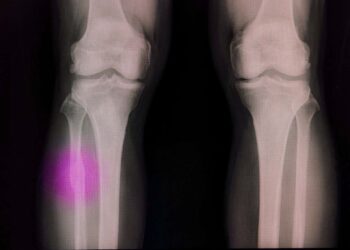TOPLINE:
Cycling, alone or combined with other modes of travel, was associated with a 19% reduced risk for all-cause dementia compared with traveling by car or other nonactive transportation modes, a new prospective cohort study showed. Cycling alone or mixed with other transportation modes was also linked to increased hippocampal volume, which has been shown to be associated with better brain health.
METHODOLOGY:
- Researchers analyzed data for nearly 480,000 participants (mean age, 56.5 years; 54% women) from the UK Biobank, collected between 2006 and 2010. The median follow-up duration was 13.1 years.
- Four groups were created on the basis of self-reported travel mode information, excluding work commute: nonactive (travel via a motor vehicle or public transportation; n = 235,508), walking (n = 32,836), mixed walking (walking combined with a nonactive mode of travel; n = 177,635), and cycling and mixed cycling (cycling combined with other modes; n = 33,744).
- The primary outcome was incidence of all-cause dementia, including young-onset dementia and late-onset dementia, identified using hospital records and death registers. Secondary outcomes were incidence of Alzheimer’s disease (AD) and changes in brain structure, determined using MRI.
TAKEAWAY:
- Compared with nonactive modes of travel, cycling and mixed cycling were associated with increased gray matter volume in 10 brain regions (P < .05) and increased hippocampal volume (β, 0.05; 95% CI, 0.02-0.08), as well as reduced risk for all-cause dementia (adjusted hazard ratio [aHR], 0.81), AD (aHR, 0.78), young-onset dementia (aHR, 0.60), and late-onset dementia (aHR, 0.83).
- In the cycling and mixed cycling group, those who did not carry the APOE ε4 gene had a lower risk for all cause dementia (aHR, 0.74) than those with the gene (aHR, 0.88), as well as a lower risk for late-onset dementia (aHR,.75 vs.91, respectively).
- Walking was associated with a marginally increased risk for AD (aHR, 1.14; 95% CI, 1.01-1.29); and both walking and mixed walking were associated with decreased gray matter volume (β for walking, -0.06; β for mixed walking, -0.02).
IN PRACTICE:
“Our findings suggest that promoting active travel strategies, particularly cycling, may be associated with lower dementia risk among middle-aged and older adults, which carries substantial public health benefits by encouraging accessible, sustainable practices for cognitive health preservation,” the investigators wrote.
SOURCE:
The study was led by Cunpeng Hou, MD, School of Public Health, Tongji Medical College, Huazhong University of Science and Technology, Wuhan, China. It was published online on June 9 in JAMA Network Open.
LIMITATIONS:
The low incidence of young-onset dementia limited detailed analysis and statistical power, and its heterogeneous presentation may have lowered the accuracy of subtype classification. Self-reporting of travel data may have caused measurement errors, and long-term travel habits were not tracked. Additionally, the limited racial diversity of the study population restricted the generalizability of the findings.
DISCLOSURES:
The study was funded by the Young Elite Scientists Sponsorship Program of the China Association for Science and Technology and the Young Scientists Fund of the National Natural Science Foundation of China. The investigators reported having no relevant conflicts of interest.
This article was created using several editorial tools, including AI, as part of the process. Human editors reviewed this content before publication.
Source link : https://www.medscape.com/viewarticle/could-traveling-bicycle-protect-against-dementia-2025a1000gzr?src=rss
Author :
Publish date : 2025-06-25 03:55:00
Copyright for syndicated content belongs to the linked Source.










